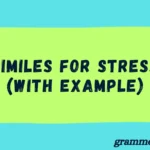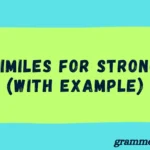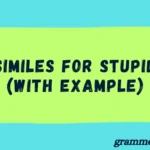Mixing up than vs then is one of the most common grammar mistakes in English. These words may look and sound similar, but they serve very different purposes. “Than” is used for comparisons, while “then” relates to time, sequence, or consequences. Confusing them can change the meaning of a sentence and weaken your writing clarity.
Whether you’re writing an email, an academic paper, or a social media post, knowing the difference is essential for effective communication.
In this guide, we’ll break down the correct usage of each word with real-life examples, grammar rules, and quick tips to help you avoid common errors. Perfect for English learners, students, and professionals, this article simplifies the grammar and gives you confidence to use “than” vs “then” the right way.
Why People Confuse “Than” and “Then”
Let’s face it—than and then are a classic case of “lookalikes” in English. Their spelling differs by just one letter, and they even sound nearly identical when spoken quickly. This similarity often causes mix-ups, especially for English learners and casual writers.
Several reasons fuel this confusion:
- Phonetic closeness: Both are pronounced almost the same, which makes it easy to confuse them when writing from dictation or notes.
- Auto-correct fails: Phones and word processors sometimes change one into the other incorrectly.
- Overlap in usage: Sometimes people mistakenly believe both words can serve similar functions.
- Homophone effect: Like “there,” “their,” and “they’re,” these words trip people up because they sound alike but mean very different things.
Understanding the root of the confusion is the first step toward writing clearly and confidently.
“Than” – What It Means and How to Use It
Than is a comparative conjunction. Its sole job is to make comparisons between two or more things, people, or ideas. Whenever you want to show that something is different in degree or quality relative to another, you’ll reach for than.
Core Uses of Than
- To compare quantities, qualities, or degrees
- To express preference or choice
- To highlight differences
Examples
| Sentence | Explanation |
| She is taller than her brother. | Comparing height |
| I’d rather read a book than watch TV. | Showing preference |
| More people came than expected. | Comparing numbers |
| It’s better to be safe than sorry. | Idiomatic expression |
Common Phrases with “Than”
- More than
- Less than
- Other than
- Rather than
- Better than
Quick Tips to Remember “Than”
- If you’re making a comparison, use than.
- It often pairs with comparative adjectives (e.g., better, taller, more).
- Think: “Than” = comparison.
“Then” – What It Means and How to Use It
Then primarily relates to time and sequence. It answers questions like when or what happens next.
Core Uses of Then
- To indicate what happens next or afterwards
- To refer to a specific time in the past or future
- To mean “in that case” or “therefore” as a transitional word
- Can function as an adverb, adjective, or noun in different contexts
Examples
| Sentence | Explanation |
| We ate dinner, then went to the movies. | Sequence of events |
| Back then, phones were bigger. | Referring to a past time |
| If you’re free, then come over. | Conditional transition |
| He was the then president. | Adjective use, meaning “at that time” |
Common Phrases with “Then”
- If… then…
- Back then
- Then and there
- Then again
Mnemonic to Remember “Then”
- Then = time or sequence
- Ask yourself: “Is it about what happens next?” If yes, use then.
Than vs. Then – Side-by-Side Comparison
To see their differences clearly, here’s a quick table that compares than and then side by side:
| Aspect | Than | Then |
| Part of speech | Conjunction (comparative) | Adverb / Adjective / Noun (time-related) |
| Main function | Makes comparisons | Indicates time sequence or condition |
| Typical questions answered | “Which one?” or “How much more/less?” | “When?” or “What next?” |
| Example sentence | She is stronger than him. | First, eat your food; then you can play. |
| Common phrases | More than, rather than, other than | If… then…, back then, then and there |
Common Mistakes (And How to Avoid Them)
Mixing up than and then is a surprisingly frequent error even among native speakers. Here’s how you can spot and fix these mistakes:
Typical Errors
- Using then when you mean than:
Incorrect: I’d rather go to the beach then the park.
Correct: I’d rather go to the beach than the park. - Using than instead of then in sequences:
Incorrect: We ate dinner, than watched TV.
Correct: We ate dinner, then watched TV. - Confusion in phrases like “more than” vs. “more then.”
Why These Mistakes Matter
- They reduce the clarity of your message.
- Mistakes in formal writing can hurt your credibility.
- Readers may get confused or think you don’t have strong writing skills.
Tips to Avoid Mistakes
- Read your sentences aloud. Does it sound like a comparison or a time sequence?
- Use a checklist when proofreading: “Is this sentence comparing? Use than. Is it about timing? Use then.”
- Use grammar tools with caution — some don’t catch this mistake.
Common Phrases That Cause Confusion
Some common English phrases pair than with specific meanings but get mistakenly written with then instead. Let’s clarify these.
Other Than vs. Other Then
| Phrase | Meaning | Correct? | Examples |
| Other than | Except for; apart from | Yes | I like all fruits other than bananas. |
| Other then | No accepted meaning; incorrect usage | No | Incorrect: I like all fruits other then bananas. |
Remember: “Other then” is almost never correct. Always use other than when you mean exception.
More Than vs. More Then
| Phrase | Meaning | Correct? | Examples |
| More than | Indicates quantity, comparison | Yes | She has more than 10 books. |
| More then | Rare and usually incorrect in casual use | Generally no | Incorrect: He earns more then me. |
Note: In some archaic or legal texts, “more then” might appear, but in everyday writing, it’s almost always a mistake.
Rather Than vs. Rather Then
| Phrase | Meaning | Correct? | Examples |
| Rather than | Expresses preference or choice | Yes | I’ll walk rather than drive. |
| Rather then | Incorrect | No | Incorrect: I’ll walk rather then drive. |
Always use rather than to express preference or choice.
Etymology: Where Did “Than” and “Then” Come From?
Understanding their origins explains why than and then look so alike but mean different things.
- Than comes Old English “þonne”, used as a conjunction in comparisons. Over time, its spelling shifted to than but retained its comparative function.
- Then comes Old English “þænne”, meaning “at that time” or “thereupon,” functioning as an adverb or adjective related to time.
Both words share Germanic roots and sound similar because they evolved from similar Old English forms but diverged in meaning as English developed.
Quick Reference Guide
| Word | Use | Key Tip | Example |
| Than | Comparisons | Used with comparative forms | She is smarter than him. |
| Then | Time or sequence | Indicates what happens next | We ate dinner, then went home. |
Printable Tips
- Use than for comparing one thing to another.
- Use then for anything related to time, sequence, or condition.
- When in doubt, ask: Is this about comparison or time?
Conclusion:
Understanding the difference between than and then may seem small, but it plays a big role in making your writing clear, professional, and accurate. Remember, “than” is all about comparison, while “then” refers to time, order, or consequence. Mixing them up can lead to confusion or misinterpretation—especially in academic, business, or formal settings.
By learning the rules, practicing with real examples, and using handy tips, you can master this grammar rule with ease. The next time you write, pause and think: Am I comparing or talking about time? That simple question will keep your writing sharp, confident, and mistake-free.
FAQs: About Than vs Then
1. What is an example of then vs than?
Then shows time or sequence, while than makes comparisons.
- I finished my homework, then I watched TV. (time/sequence)
- She is taller than her sister. (comparison)
2. What is an example of rather than or then?
Rather than expresses preference or choice; then relates to time.
- I’d prefer to walk rather than drive. (preference)
- First, finish your work, then you can relax. (sequence)
3. What is an example of other than or then?
Other than means except or apart from; then indicates time or consequence.
- I like all fruits other than bananas. (exception)
- If you finish early, then we can go out. (condition/time)
4. What are 5 sentences for than?
- She runs faster than me.
- I’d rather read than watch TV.
- More people showed up than expected.
- This book is better than the last one.
- He works harder than anyone else.
5. What are 5 sentences for then?
- We ate dinner, then went for a walk.
- Back then, phones were much bigger.
- If it rains, then we’ll stay inside.
- Finish your homework, then you can play.
- She was the then CEO of the company.

Mariah Cannon is the dedicated educator behind GrammerHome.com, committed to making English grammar clear, engaging, and confidence-boosting. With years of teaching experience and a passion for effective communication, Mariah specializes in breaking down complex grammar rules into bite-sized, easy-to-apply lessons.




